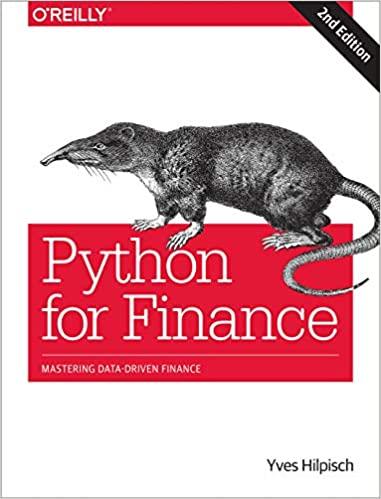Question
Hello, this is one scenario so I hope you will be able to help me on all parts! :) Thank you!! Which of the following
Hello, this is one scenario so I hope you will be able to help me on all parts! :) Thank you!!

Which of the following most closely approximates what the projects net present value (NPV) would be under the new tax law?(Hint: Round your final answer to two decimal places and choose the value that most closely matches your answer.)
$17,196.03
$21,972.70
$15,285.36
$19,106.70
Which of the of the following most closely approximates what the projects NPV would be when using straight-line depreciation? (Hint: Round your final answer to two decimal places and choose the value that most closely matches your answer.)
$20,682.47
$17,085.52
$17,984.76
$22,480.95
Using the (bonus/straight-line) depreciation method will result in the highest NPV for the project.
No other firm would take on this project if McFann turns it down. Which of the following most closely approximates how much McFann should reduce the NPV of this project, assuming it is discovered that this project would reduce one of its divisions net after-tax cash flows by $600 for each year of the four-year project? (Hint: Round your final answer to two decimal places and choose the value that most closely matches your answer.)
$1,582.25
$1,116.88
$1,396.10
$1,861.47
McFann spent $2,500 on a marketing study to estimate the number of units that it can sell each year. What should McFann do to take this information into account?
a. Increase the NPV of the project $2,500.
b. The company does not need to do anything with the cost of the marketing study because the marketing study is a sunk cost.
c. Increase the amount of the initial investment by $2,500.
This project will require an investment of $20,000 in new equipment. Under the new tax law, the equipment is eligible for 100% bonus deprecation at t=0, so it will be fully depreciated at the time of purchase. The equipment will have no salvage value at the end of the project's four-year life. McFann pays a constant tax rate of 25%, and it has a weighted average cost of capital (WACC) of 11%. Determine what the project's net present value (NPV) would be under the new tax lawStep by Step Solution
There are 3 Steps involved in it
Step: 1

Get Instant Access to Expert-Tailored Solutions
See step-by-step solutions with expert insights and AI powered tools for academic success
Step: 2

Step: 3

Ace Your Homework with AI
Get the answers you need in no time with our AI-driven, step-by-step assistance
Get Started


